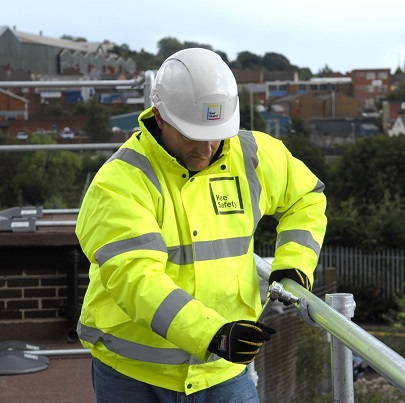 Monday, September 30, 2024
Monday, September 30, 2024  Monday, September 30, 2024
Monday, September 30, 2024 
When Paul McCartney of the Beatles penned “Here, There and Everywhere” in 1966, he was not working for the Canadian Centre for Occupational Health and Safety (CCOHS). The sentiment, however, has resiliency as safety guardrails are an ideal way to protect workers here, there, and everywhere throughout a facility.
People use the terms guardrails and handrails interchangeably, but there is a difference. Whereas a handrail is your helpful companion, a guardrail is a life-saving device. Guardrails are quick and easy to install and provide collective fall protection. That means guardrails protect several people at once and do not require worker training or wearing any special equipment.
The International Building Code (IBC) says that guardrails should be located at or near the open sides of elevated walking surfaces to minimize a fall to a lower level. Handrails can be used with guardrails to support a person walking across ramps, stairs, and flat areas.
Even before one enters a facility, there are prime places for safety railings. Steps and wheelchair ramps are obvious spots. Loading docks with a possibility of a fall should also be protected. Railing systems can separate pedestrians from trucks and other vehicular traffic near sidewalks and in parking areas.
Keep reading this article on KeeSafety.ca